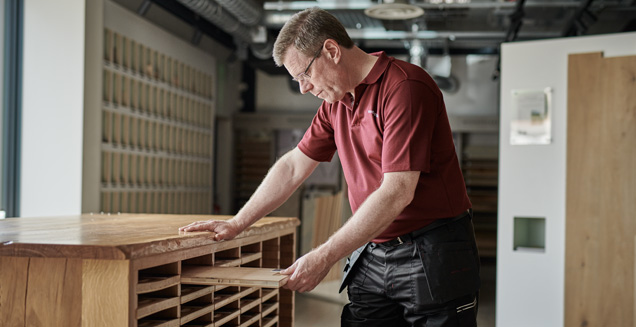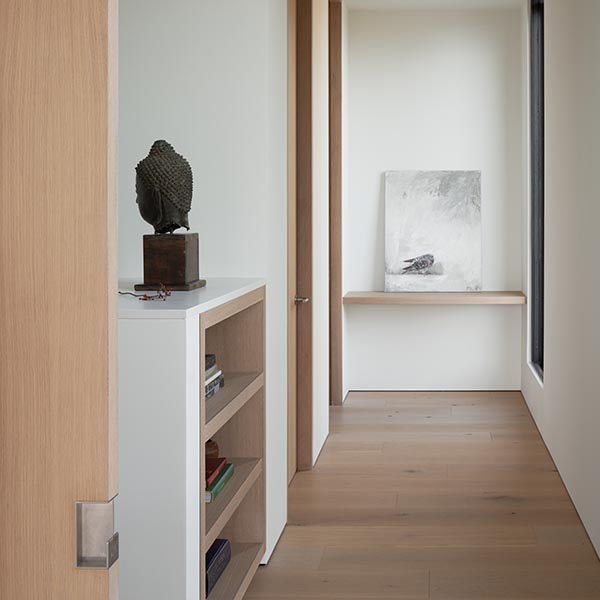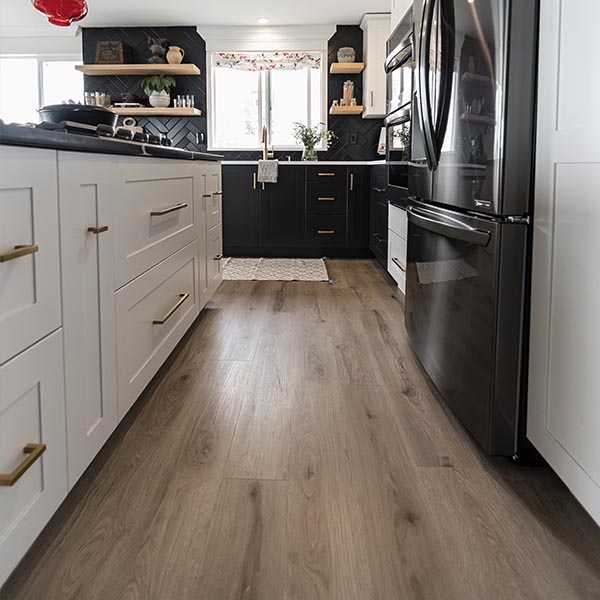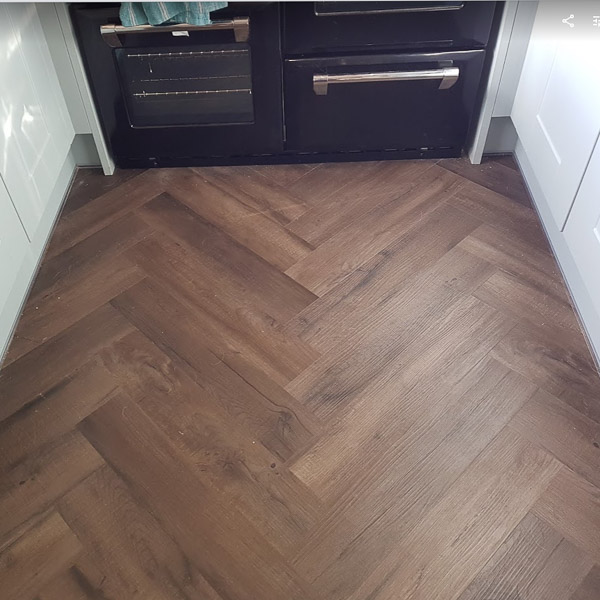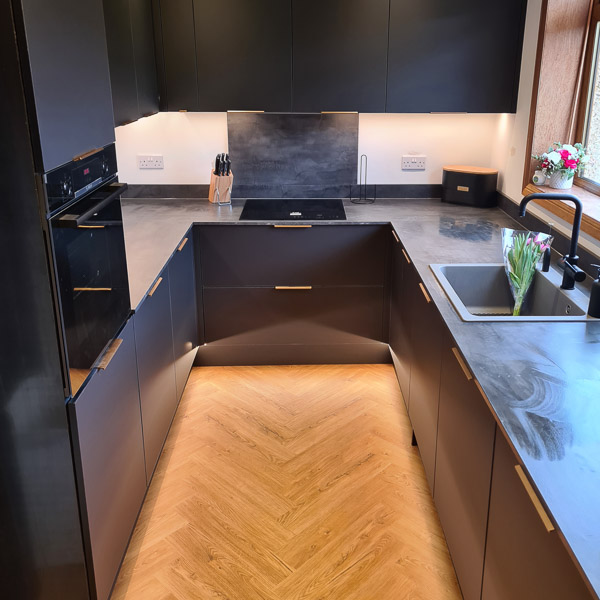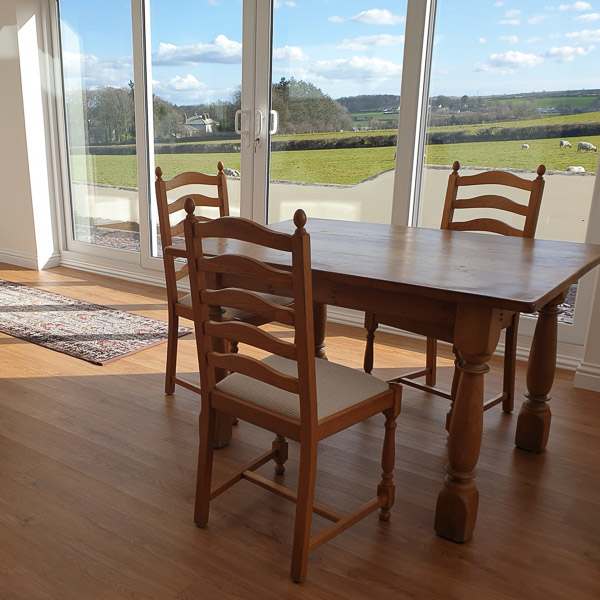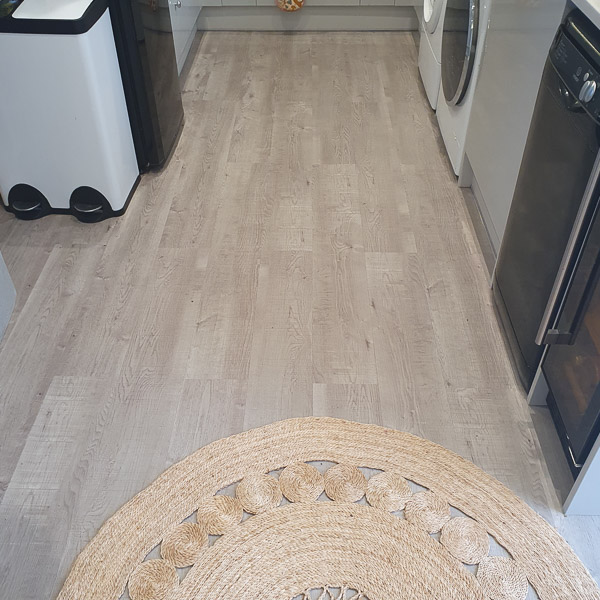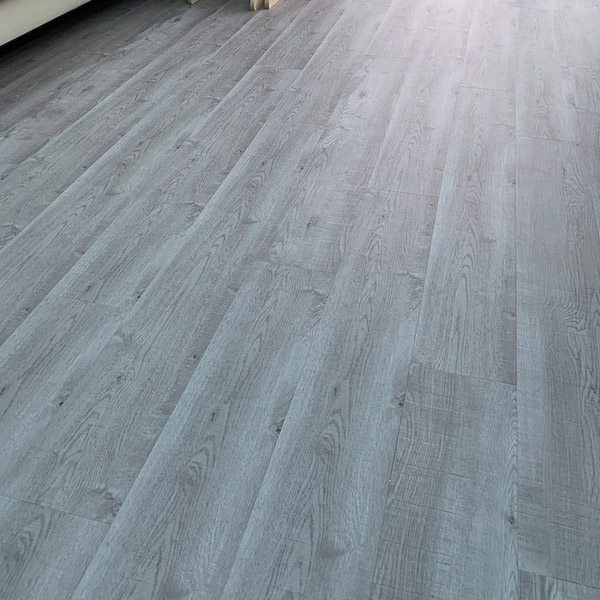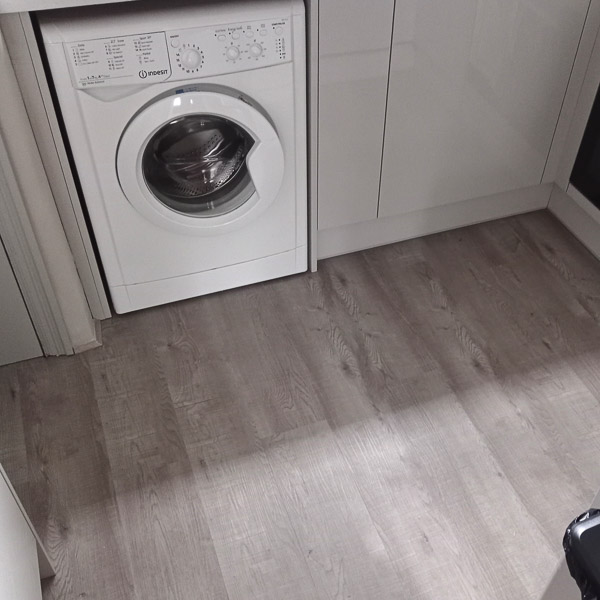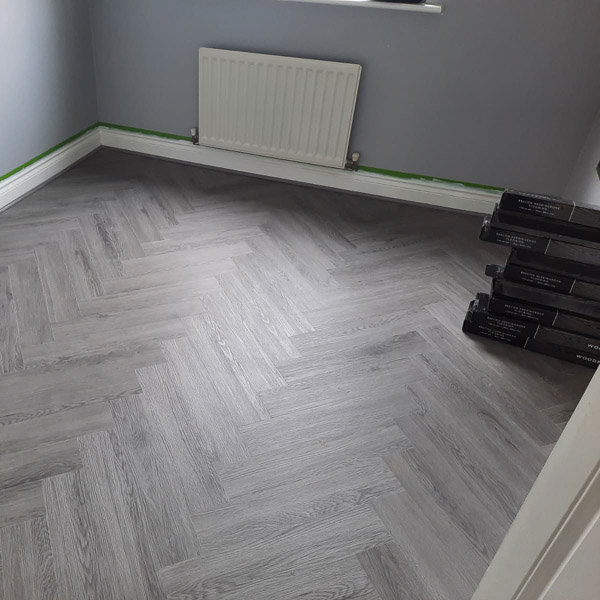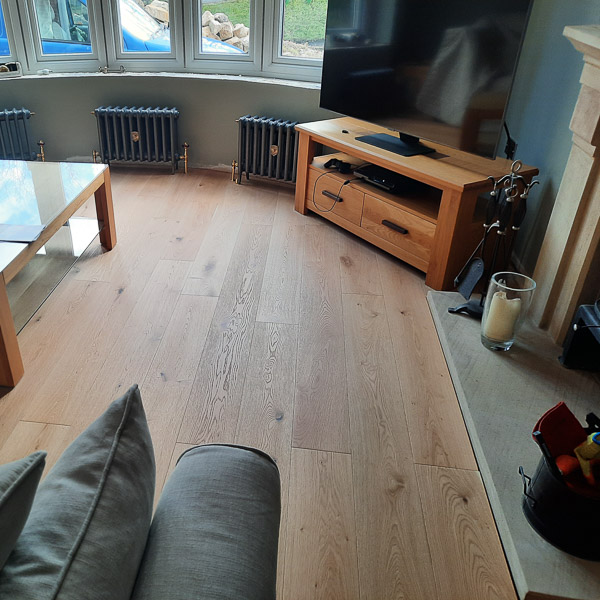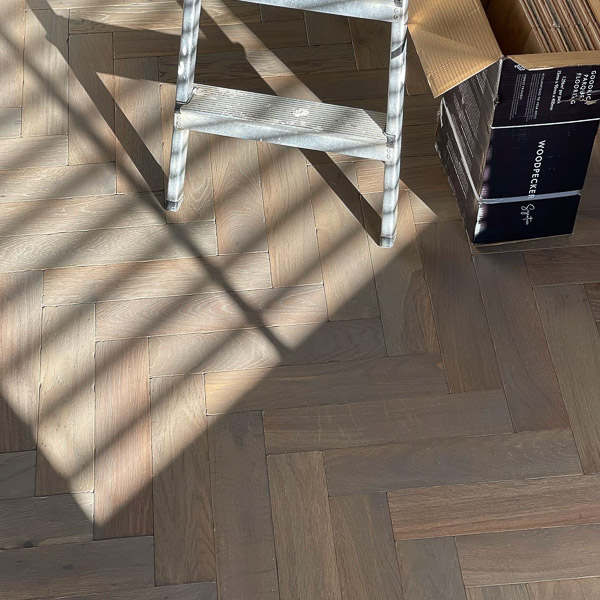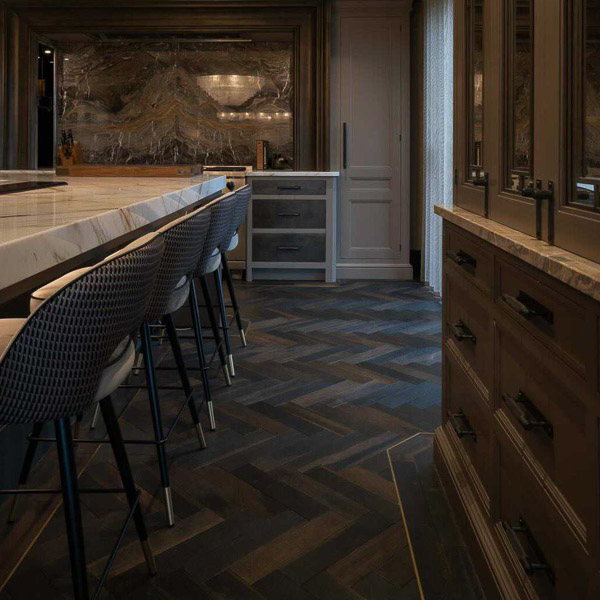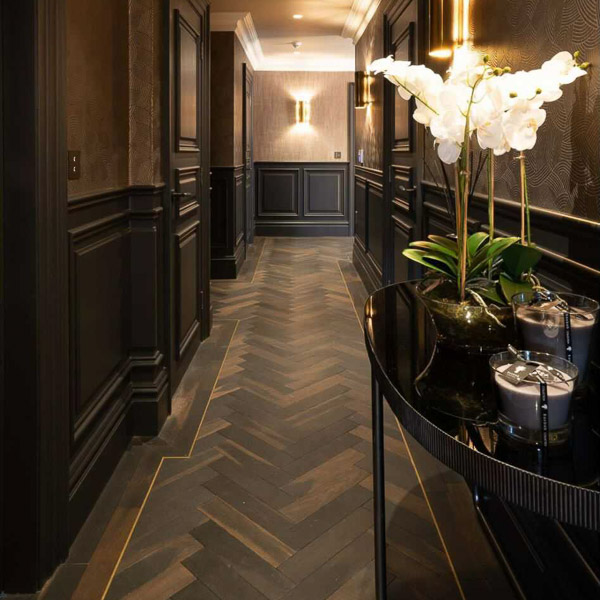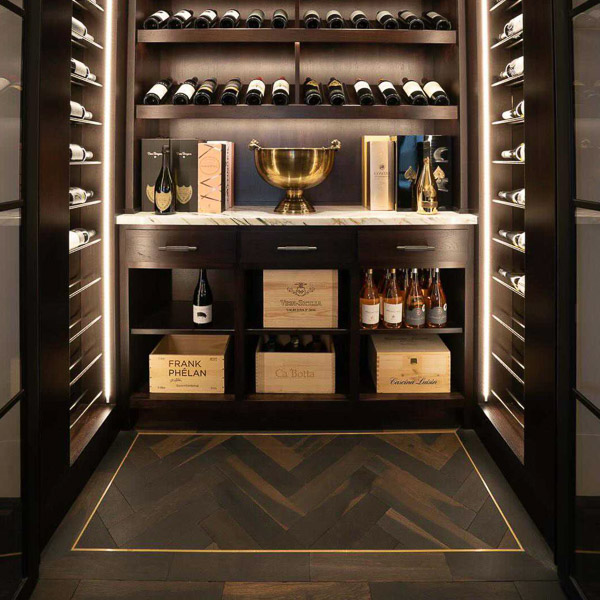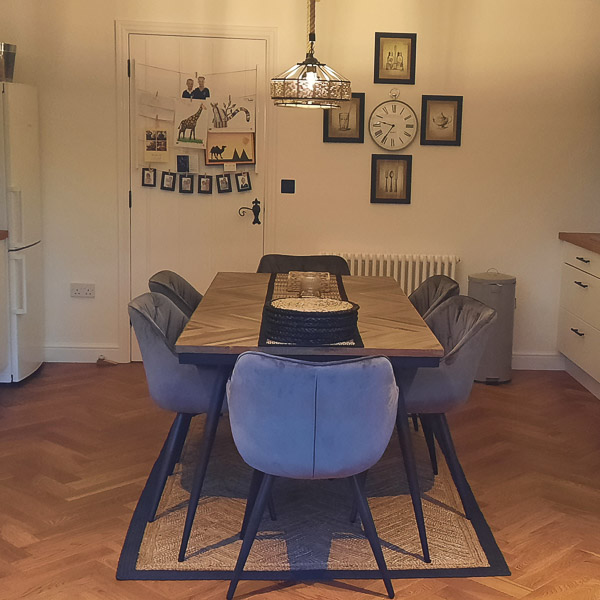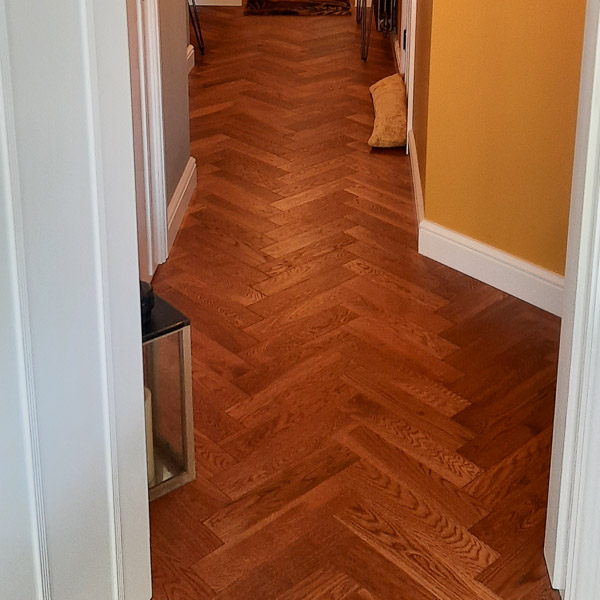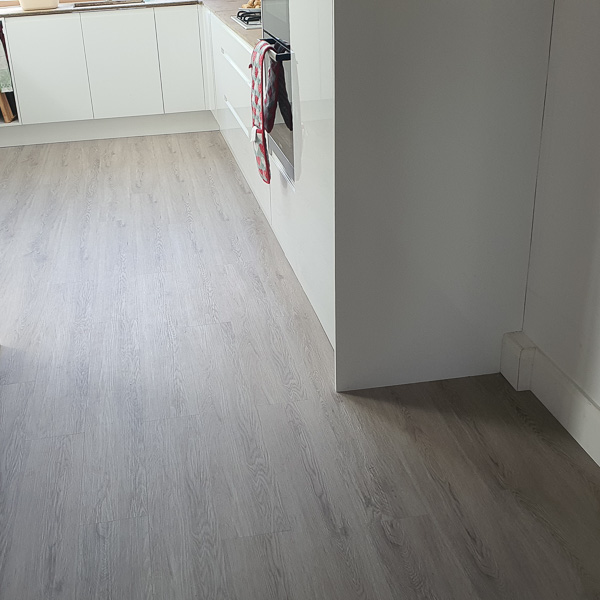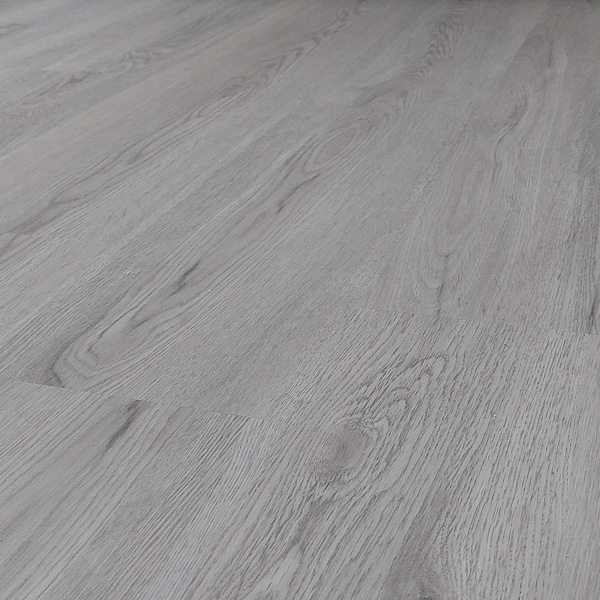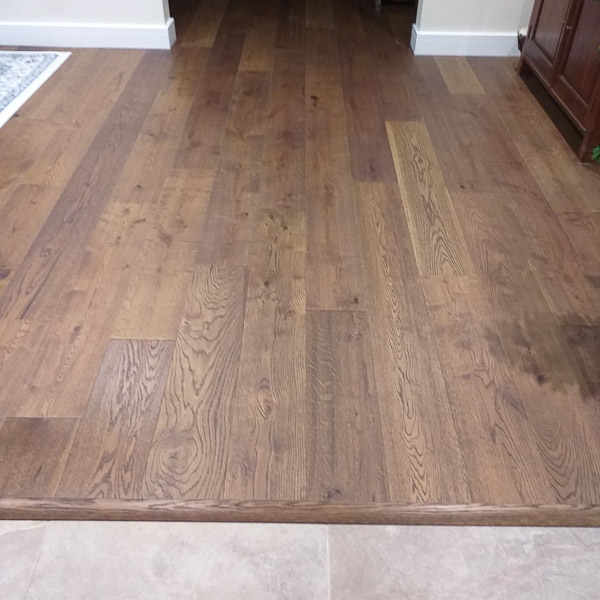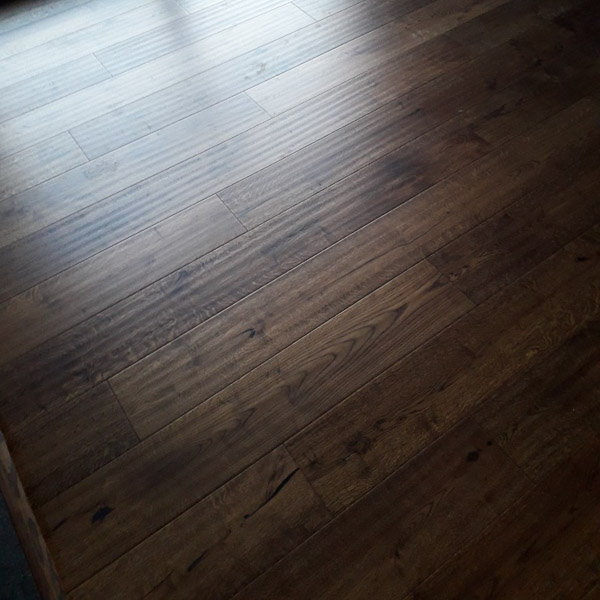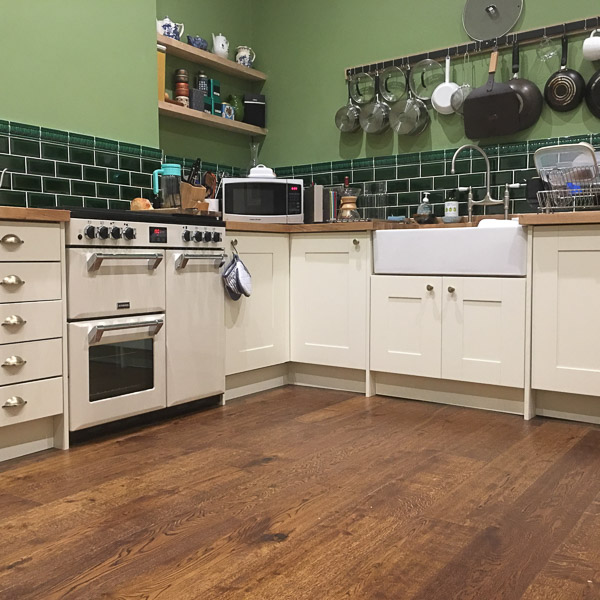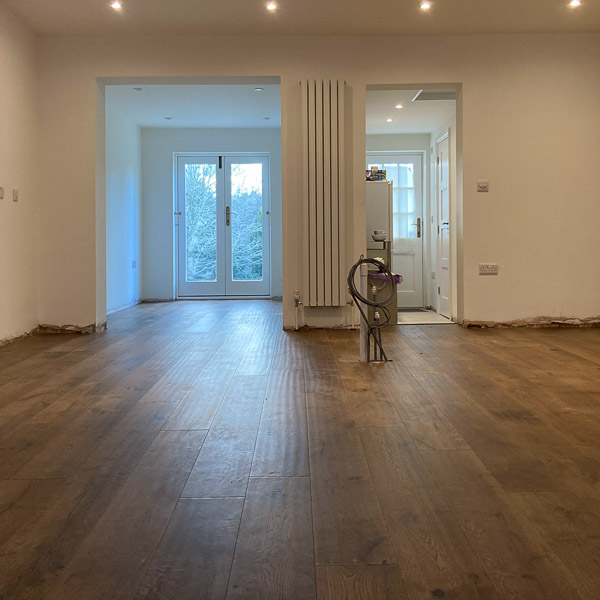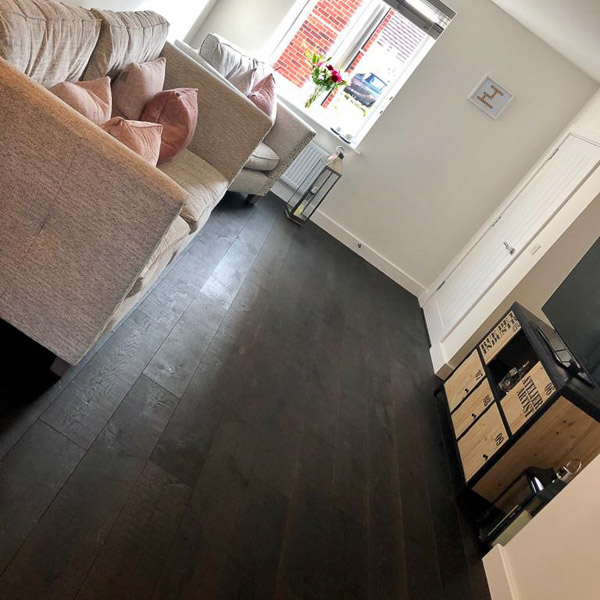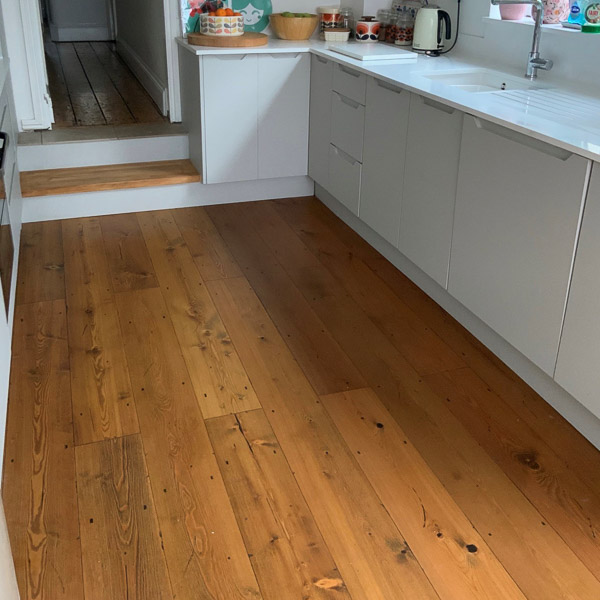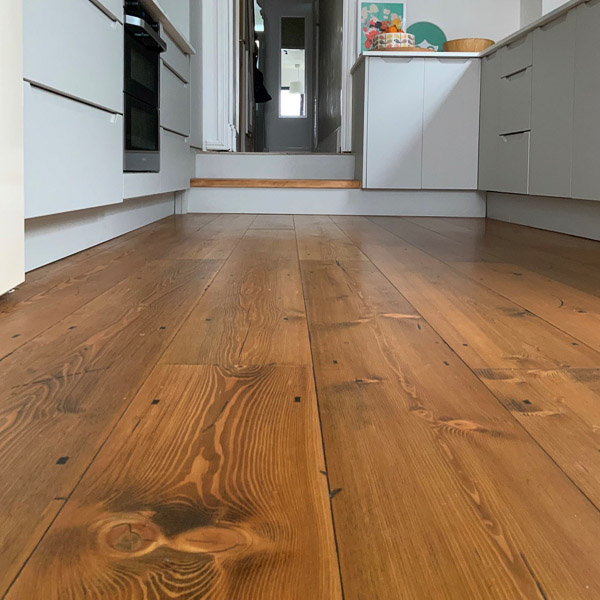Buying a new floor is not only a big decision but an investment as well. Many essential questions may come to mind, such as: is engineered flooring real wood? Or, what would be the best floor for pet owners? We understand choosing the right floor may feel overwhelming. Therefore, we have compiled an easy resource guide to help you pick the best options for your needs and preferences. However, if you would rather talk to an actual human, Woodpecker team members are standing by to answer your call. We would love to help you decide on the perfect floors for your home.
The table below shows the main differences between solid and engineered hardwood flooring. We have a more in-depth resource to help clarify your questions if you want to know more about this topic.
| SOLID | ENGINEERED | |
| Real Wood | YES | YES |
| Possible refinishing | YES | Depending on wear layer. Example: a 6mm wear layer can be refinished as many times as a solid wood floor |
| Size | Shorter and narrower planks due to stability | Longer and wider plank options are available |
| Sustainability | Less sustainable than other products such as engineered | More sustainable as from a single solid board, multiple planks can be made |
| Installation | Ground or above ground | Basement (with the proper installation), ground and above ground |
| Underfloor Heating | NO | YES |
| Stability | More susceptible to temperature and humidity changes | More resistant to temperature and humidity (less movement) |
| Maintenance | Medium | Medium |
Hardwood flooring is a natural product, and even though it can be very versatile, it shouldn’t be used in every room. The table below shows you where it is best for flooring in your space and other features to consider.
| SOLID | ENGINEERED | LVP | HYBRID | |
| Kitchen | ✓ | ✓ | ✓ | ✓ |
| Bathroom | x | x | ✓ | ✓ |
| Basement | x | ✓ | ✓ | ✓ |
| Waterproof | x | x | ✓ | x |
| Water Resistant | x | x | ✓ | ✓ |
| Thermal Properties | Not as cold as LVP | Not as cold as LVP | Cold | Medium |
| Stair Nosing Available | Stair nosing available | Stair nosing available | Stair nosing available | Stair nosing available |
| Maintenance | Medium | Medium | Low | Low |
| Aesthetic | Beautiful natural look | Beautiful natural look | Repeated pattern every 5-8 planks | Natural look with LVP benefits |
We all love our furry friends and shouldn’t be forced to choose between them and having beautiful floors. You can have both, just take into consideration that you will need to be more cautious. Choosing a floor with character and texture that can hide blemishes is among the top options for pet owners. Oil finishes are also perfect for our furry friends because they can easily be repaired in case of scratches.
Oiled and Urethane finishes
When you’re thinking about wood of any kind, the question of finishes always comes up. Many people will ask, which one is better, an oiled or urethane finish? However, there is no correct answer to that — only the right answer for you. Oiled finishes afford floors’ strength and durability by seeping deep into the wood grain. You will have a lot more control over its care. You can blend scratches in by applying more of the oil to fix them — a nice perk!
On the other hand, many folks see urethane floor finishes as a more durable option. Multiple layers (polyurethane) protect the wood through many levels. In the long run, though, those layers wear down. That means scratches won’t be so easy to fix, at least not without noticeable patchwork. If that happens, even a single scratch will mean you’ll have to refinish the entire floor or replace the plank that is damaged. No matter how you go, choosing the right flooring for your needs will bring you lots of happy feet in your space!


